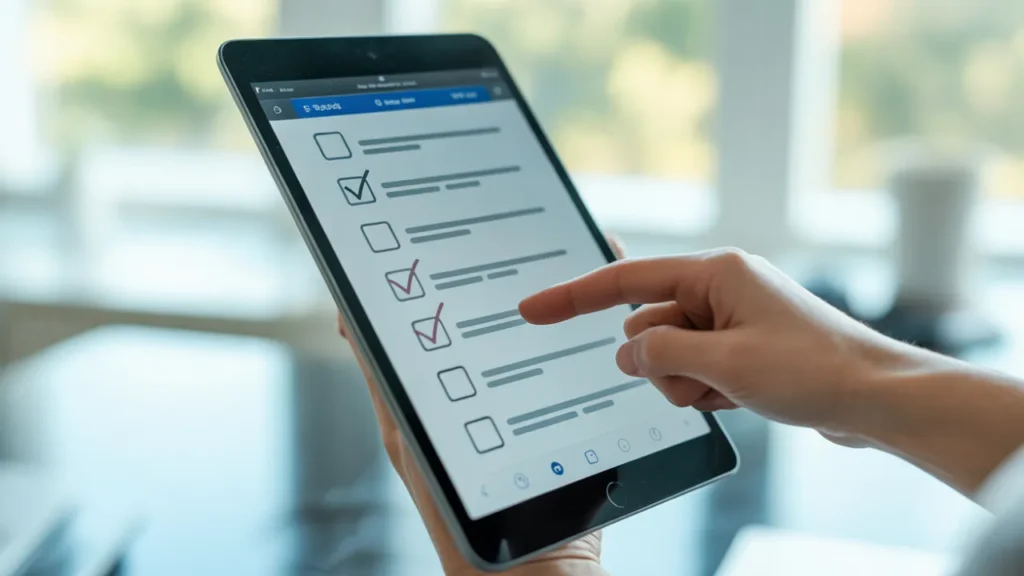Different Types of BPD: How Clinicians Describe Patterns Without Formal Subtypes
People search “different types of BPD” because symptoms vary widely. One person shows anger and impulsivity, while another hides shame and sadness. Clear patterns help set therapy goals and reduce risk.
The Diagnostic and Statistical Manual of Mental Disorders does not list BPD subtypes. Clinicians still use pattern language to guide behavior targets and safety steps. These maps keep plans simple while honoring each patient’s needs.

The DSM And Real-World Patterns
You may hear “impulsive,” “petulant,” “quiet,” or “self-destructive” as shorthand. These terms describe clusters of behavior and emotion, not separate diagnoses. Use them to pick skills, not to box anyone in.
Four Presentations People Commonly Recognize In Daily Life
Impulsive style shows risk-taking, binge drinking, substance abuse, and fast choices under stress. Petulant style blends anger, resentment, and fear of abandonment that pulls people close and then pushes away. Quiet style turns distress inward with emptiness, depression, dissociation, and hidden suicidal ideation; self-destructive style adds self-harm or other dangerous behavior.
Internalizing Versus Externalizing Styles In Daily Life
Internalizers suppress anger and attention shifts to fear, shame, and sadness. Externalizers show visible anger and aggression that strain work and family bonds. Both styles improve with skills for distress tolerance and emotion regulation.
Skills That Support Each Style Without Overwhelm
For internalizing patterns, start with naming emotion, sharing needs, and reducing shame loops. For externalizing patterns, front-load cue detection, brief delay steps, and repair scripts after conflict. Both benefit from steady sleep, regular eating, and structured routines to settle mood.
Co-Occurring Conditions That Change The Picture
BPD often overlaps with bipolar disorder, major depressive disorder, anxiety disorders, and attention deficit hyperactivity disorder. Alcohol and drug use can raise risk and mask true triggers. Care must address all active problems at the same time.

Bipolar Disorder And Mania: Key Differences From BPD Mood Shifts
Bipolar disorder shows distinct episodes of depression and mania or hypomania with sleep and energy changes. BPD mood shifts move faster and tie closely to rejection or abandonment cues. Psychiatry input helps align medication and therapy for the right target.
Major Depressive Disorder And Persistent Sadness That Lingers
Long episodes of low mood, fatigue, and loss of interest signal major depressive disorder. In BPD, mood often swings within hours after stress peaks. A mental health professional can treat both with therapy, skills, and careful medication use.
ADHD, Attention, And Fast Reactions That Escalate Conflict
ADHD increases impulsivity and attention lapses that amplify BPD struggles. Quick reactions lead to fights, spending, or driving risks when stress rises. Medication, coaching, and simple checklists help the brain pause before action.
Substance Abuse, Alcohol, And Addiction Risks You Should Know
Some people numb emotion with alcohol or other drugs. Addiction raises disease burden and blocks learning new behavior. Integrated therapy treats substance abuse and the personality disorder together from day one.
Eating Changes, Control, And Shame That Follow Stress
Food can become a short-term way to manage fear, anger, or emptiness. Binges, restriction, or purging offer relief but deepen shame and health risk. Therapy replaces these cycles with safer coping and distress tolerance.
Risk Factors And Life Experiences
There is no single cause of borderline personality disorder. Research links sensitive temperament, invalidating settings, and trauma to later risk. Early support lowers distress and improves relationships.
Trauma, Sexual Abuse, And Ongoing Stress That Shape Beliefs
Repeated stress and abuse can teach the brain to expect abandonment and danger. Triggers then spark fear and anger even in safe moments. Therapy rebuilds safety and connection step by step.
Family Patterns, Codependency, And Attachment Wounds That Repeat
Chaotic homes reward survival tactics that later harm adult bonds. Codependency, testing love, and withdrawal repeat across partners and friends. Treatment adds boundary scripts and repair tools that hold under pressure.
Brain Sensitivity, Emotion Circuits, And Memory Under Strain
Imaging studies suggest heightened reactivity in emotion circuits. People feel more, faster, and stay activated longer after conflict. Calming skills let attention and memory recover so choices improve.
Evidence-Based Care For All Presentations
Care works best when it fits symptoms, risk, and goals rather than a “type.” Dialectical behavior therapy offers skills that help across patterns. Psychiatry adds medication for depression, anxiety, ADHD, or sleep when symptoms block progress.
What Dialectical Behavior Therapy Teaches And How Skills Help
DBT teaches mindfulness, emotion regulation, distress tolerance, and interpersonal effectiveness. Mindfulness boosts attention to early cues before behavior spirals. Distress tolerance adds crisis tools that cut risk without alcohol or self-harm.
When Psychiatry And Medication Support Steady Progress
No medication cures borderline personality disorder. Targeted options can ease depression, anxiety, sleep, or attention problems. A psychiatrist reviews benefits, side effects, and safety so choices stay clear.
Dual Diagnosis Care And Safety Planning That Protect Life
Alcohol or drug use increases impulsivity and suicidal ideation risk. An integrated plan treats withdrawal, craving, and behavior triggers. Safety plans reduce access to means and add rapid contact steps.
Practical Steps You Can Use This Week
Small moves build momentum even when emptiness and anger feel loud. Pick one skill, track it daily, and record wins. Reach out for support before stress peaks.
Track Triggers, Mood, And Attention With Simple Tools
Note events, thoughts, body cues, and behavior that follow conflict or rejection. Include sleep, eating, alcohol, and dissociation so patterns stand out. This improves psychology insight and helps your brain catch triggers earlier.
Boundary Scripts, Time-Out Plans, And Repair Moves That Stick
Write short scripts you can read during fights to keep attention on needs. Agree on time-outs that cool anger without punishing closeness. Close with repair statements and appreciation to end loops of resentment.
Build A Support Team In Orange County For Daily Stability
Choose one mental health professional, one trusted friend, and one backup contact. Ask about DBT groups, coaching support, and dual diagnosis care. Revival Mental Health serves Orange County communities with therapy and psychiatry in one place.
BPD Myths Checklist You Can Review Quickly
- ☐ “BPD means manipulative behavior that never changes.”
- ☐ “Medication alone can fix BPD without therapy.”
- ☐ “Only women have BPD, men do not.”
- ☐ “If I function at work, my symptoms are not serious.”
- ☐ “Anger is the main sign; quiet BPD is not real.”
- ☐ “Substance abuse must be treated before any BPD work starts.”
- ☐ “Suicidal ideation is always attention seeking.”
- ☐ “DBT is the only therapy that can help.”
- ☐ “Family should stay out because they make it worse.”
- ☐ “Diagnosis means I will lose control of my life.”

When Urgent Help Is The Next Right Step
Get immediate help if you have active suicidal ideation, a plan, or access to means. Go to the nearest emergency department or call local crisis lines now. Safety comes first before any label or plan.
What To Bring To Your First Appointment For Faster Progress
List medications, previous therapy notes, and goals. Note alcohol use, eating changes, stress triggers, and any sexual abuse history you wish to share. Bring questions on DBT, medication options, and family involvement.
Final Thoughts And How Revival Mental Health Can Help
BPD patterns describe how pain shows up; they do not define your future. Real change happens through skills practice, steady support, and clear safety steps.
What Care Looks Like At Revival Mental Health In Orange County
Revival Mental Health provides therapy, psychiatry, and DBT-informed groups for borderline personality disorder. We treat co-occurring alcohol use, substance abuse, major depressive disorder, anxiety, and attention deficit hyperactivity disorder in one plan. Our team coordinates coaching, medication management, and family sessions to reduce risk and support daily wins.
How To Start And What To Expect With Our Team
Call to schedule a consult and benefit check, or request an appointment online. We review behavior patterns, mood, attention, and any addiction risk in the first visit. You leave with clear next steps, distress tolerance tools, and support contacts.
FAQs
- Is BPD Ever Officially Subtyped In the DSM? No, the DSM does not create formal BPD subtypes. Clinicians use pattern language to plan therapy and track risk. This keeps care flexible and focused on current behavior.
- Can DBT Help If My Symptoms Feel Mostly “Quiet”? Yes, DBT helps internalizing patterns by building language for emotion and needs. Skills reduce shame and increase connection without losing safety. Coaching supports real-life practice when stress spikes.
- How Do I Tell Bipolar Disorder From BPD Mood Swings? Bipolar disorder shows episodes with sleep and energy shifts, including mania or hypomania. BPD mood changes tend to be rapid and event-triggered. A psychiatrist can evaluate both and adjust medication and therapy.
- Will Insurance Cover Treatment At Revival Mental Health? Many plans offer coverage for therapy and psychiatry. We can verify benefits and explain options before you start. Bring your insurance card so we can confirm details quickly.





